I run into resistance when trying to commit to a niche. Here’s a letter I wrote to myself for support.
I find choosing and committing difficult. I know why it's important, but I keep coming up with counter-argument and excuses. I wrote a letter to myself for mental support. Hope it helps you too.

The 10 reasons why you should define your niche, especially when you're just starting out.
Defining a niche, focusing your work on specific people, picking specific goals. It all keeps coming back when I listen to successful entrepreneurs.
Now, I don't particularly like focusing. I like flexibility, options, variety. But even I have come to believe it good for you business and growth.
Here are the 10 reasons why you should define your niche, especially when you're just starting out.
Funny thing, I already wrote about the why. But when writing about the how, I realised I had more to say.

Know your work. Translating success to your main focus. (Metrics part 2)
In the last post, I focused on the importance of creating a metric that allows you to track whether or not your work is having the desired effect.
Even more powerful is being able to track whether or not you've done the work necessary to reach that effect.
It's difficult to make that translation. That's part of your experience as an entrepreneur. But it allows you to do some nifty things. Check it out.

What's your metric for success? (Metrics part 1)
At its core, entrepreneurship is doing things you like doing and can do, for people who like it and benefit from it. The game is to do that, ánd charge for it so you can do it again.
So how much revenue do you want to generate? And how does that translate to a number you can track so that you know you're on the right track?
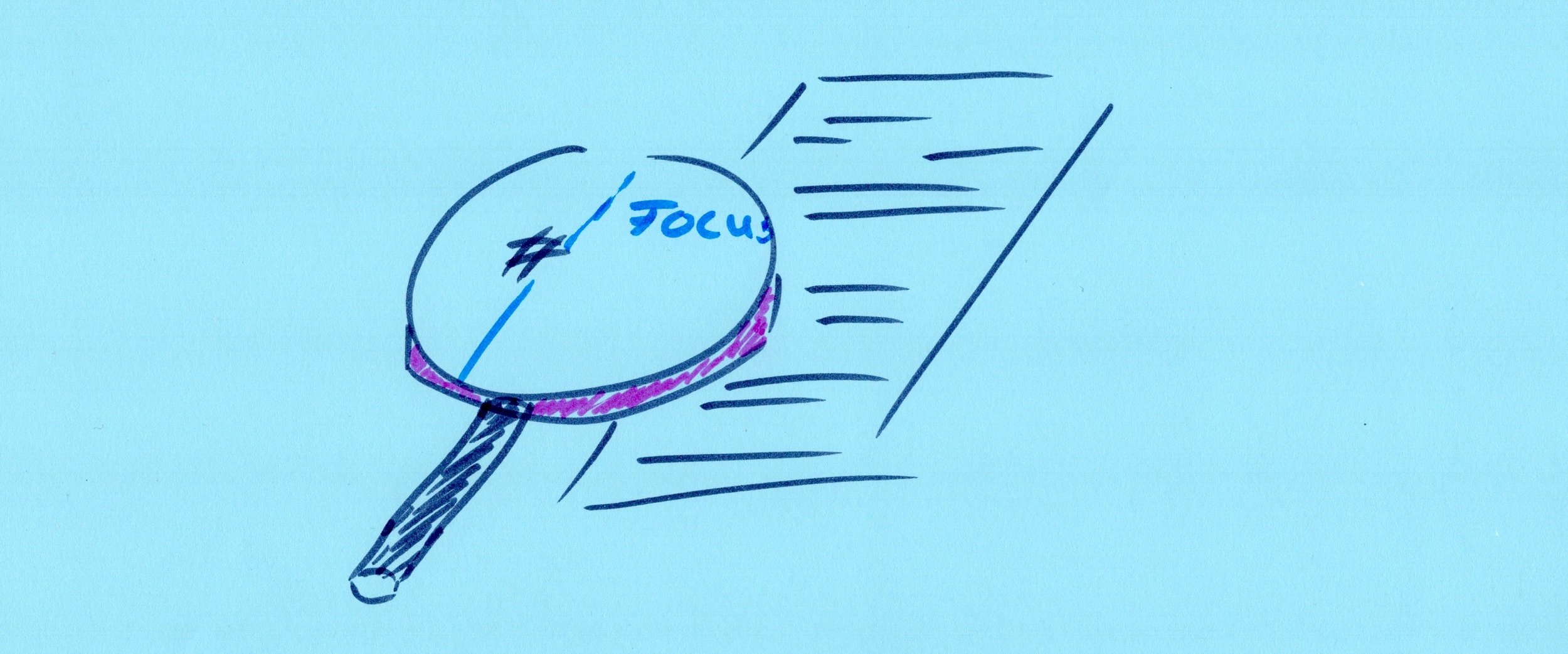
Why you need to focus. The benefits of not being for everyone.
Everywhere I go, focus seems to be important. But if you're anything like me, you resist focus. Because it means that you don't get to do the other things. "There are so many exciting options." "Won't I miss out if I focus and cut off options?"
So, in this piece, I'll explain why I (have come to) believe focus actually helps me. And I share the mental loops my brain jumps through to convince me otherwise.
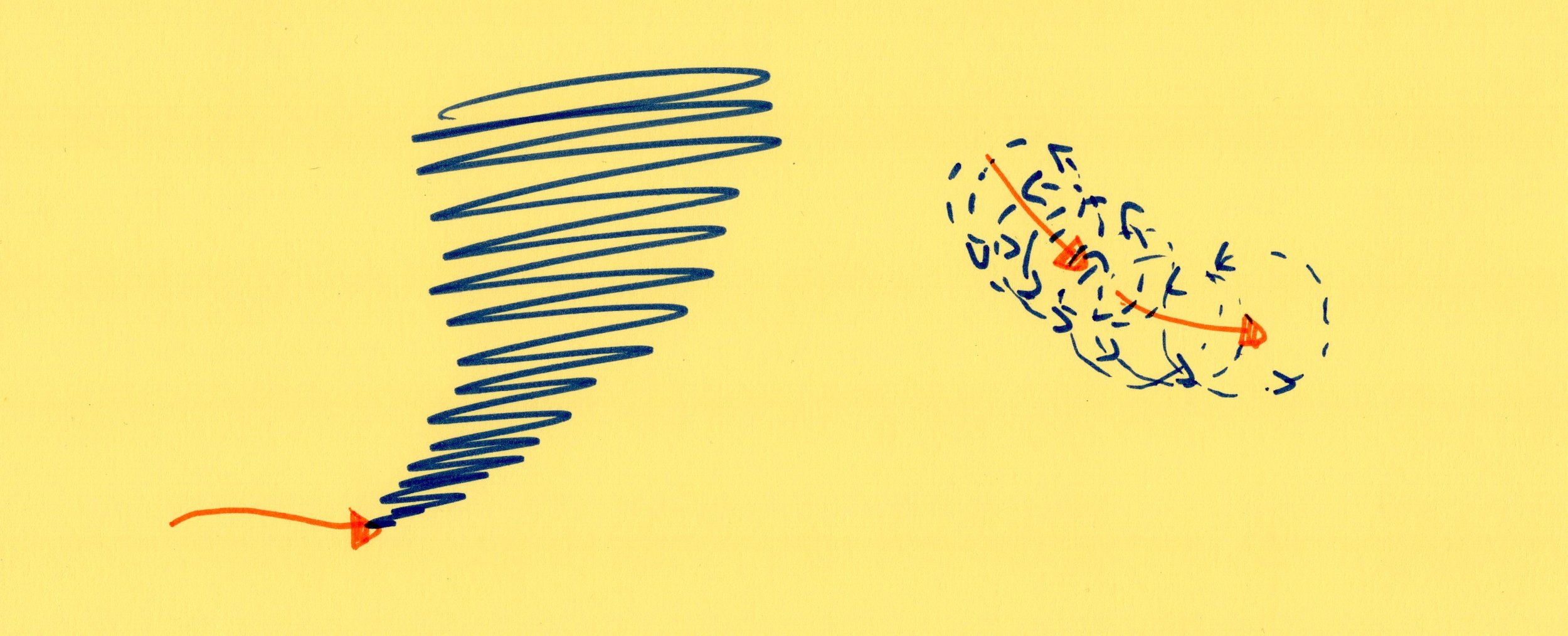
Focusing on the slow and boring is actually faster and exciting.
Are the things that demand the most of your attention and focus really what drive the most value to your life, work and happiness?
The fast and unimportant ones have a tendency of grabbing all the attention. While really, the power resides with the slow boring stuff.

How to answer "What do you do" when you don't really know?
“How is it going”, you ask. “Great!”, “Couldn’t be better”, “Crushing it”, he says. “And what are you doing now? How is it going?”.
Pff, the pressure to be crushing it too...
So, what do you do when everything could be better? When all you want to answer is “I’ve got no f*cking clue!!!”.
Of course, there's no shame in that and please feel like you can. But wouldn’t it be great to have a way to answer the questions with confidence even when you feel completely incompetent?

Talent is overrated. The name of the game is practice.
The craft of the top performer isn’t perfect because of their talent. It’s perfected by the endless hours of practice they put in. And so can you.
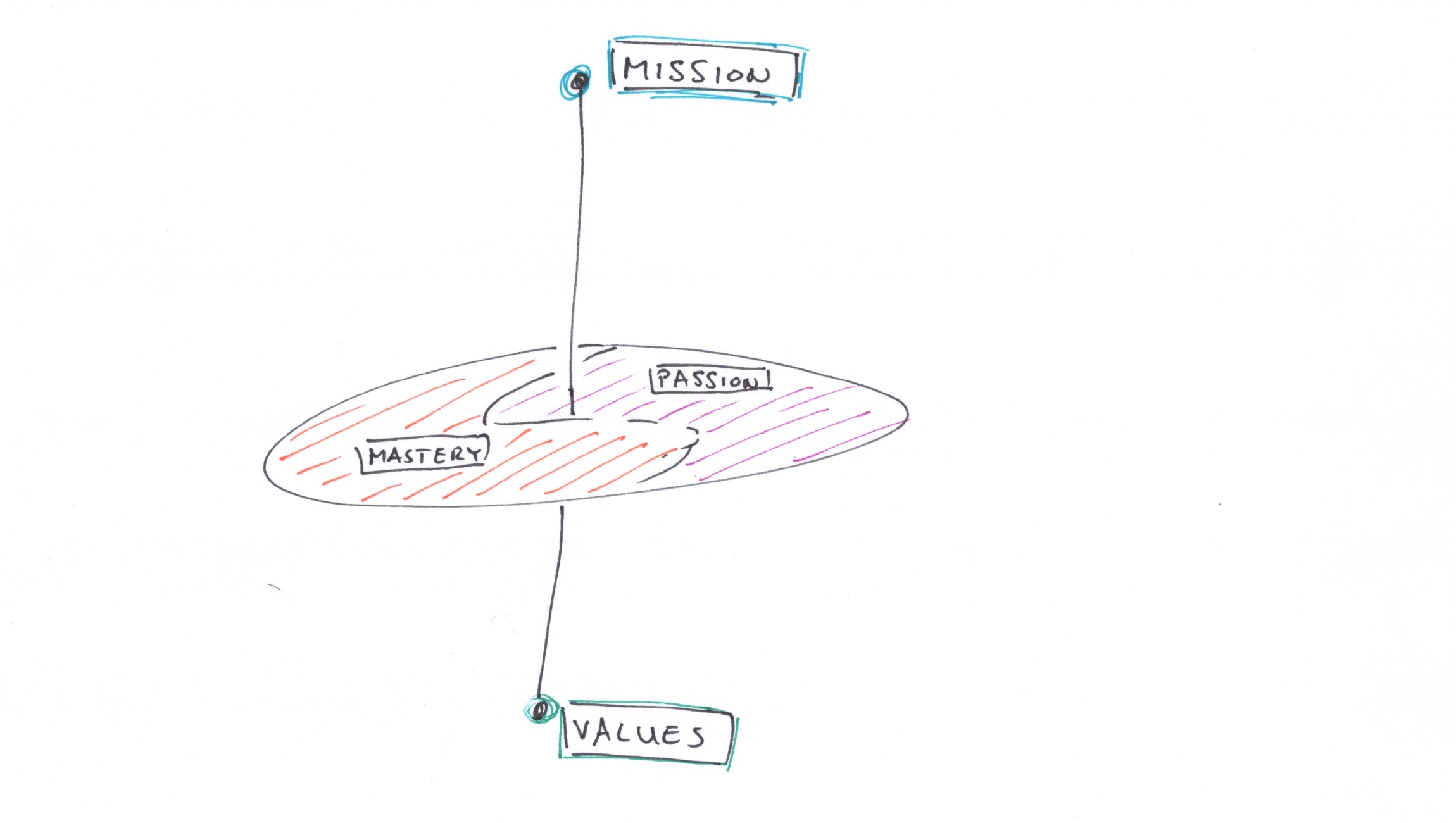
The 4 Drivers of Purpose in your Life
What is purpose really? Deconstructing purpose into 4 simple building blocks.
Simplify your quest with my model for purpose that allows for a more focused approach.

My 10 fears that prevent me from making a decision or committing. And the story I choose to believe instead to empower action.
Do you ever put off making a decision? Postpone taking action? I do. I know a lot of great excuses to make me feel like it's the smart thing to do. The resistance to it is quite clever. But in the end, it's usually one of these 10 fears that are holding me back.

Should you ever work for free? (Pricing #5)
They will ask it. "Paid work will come!" "It's a great opportunity to show your work to potential clients!" How to deal with potential clients (and yourself!) when they ask you to work for free.

The case for following your talent over passion. Love what you do, by doing what you’re good at.
Now, this might not be a popular opinion. But I'm here to make a case for simply and boringly following your talent instead of your passion!
Because it's clear how talent leads to enjoyment. It's less clear that enjoyment always leads to skill.
Here are 11 reasons why it's much smarter, more joyful and sexier to do what you're good at, instead of what you're passionate about.
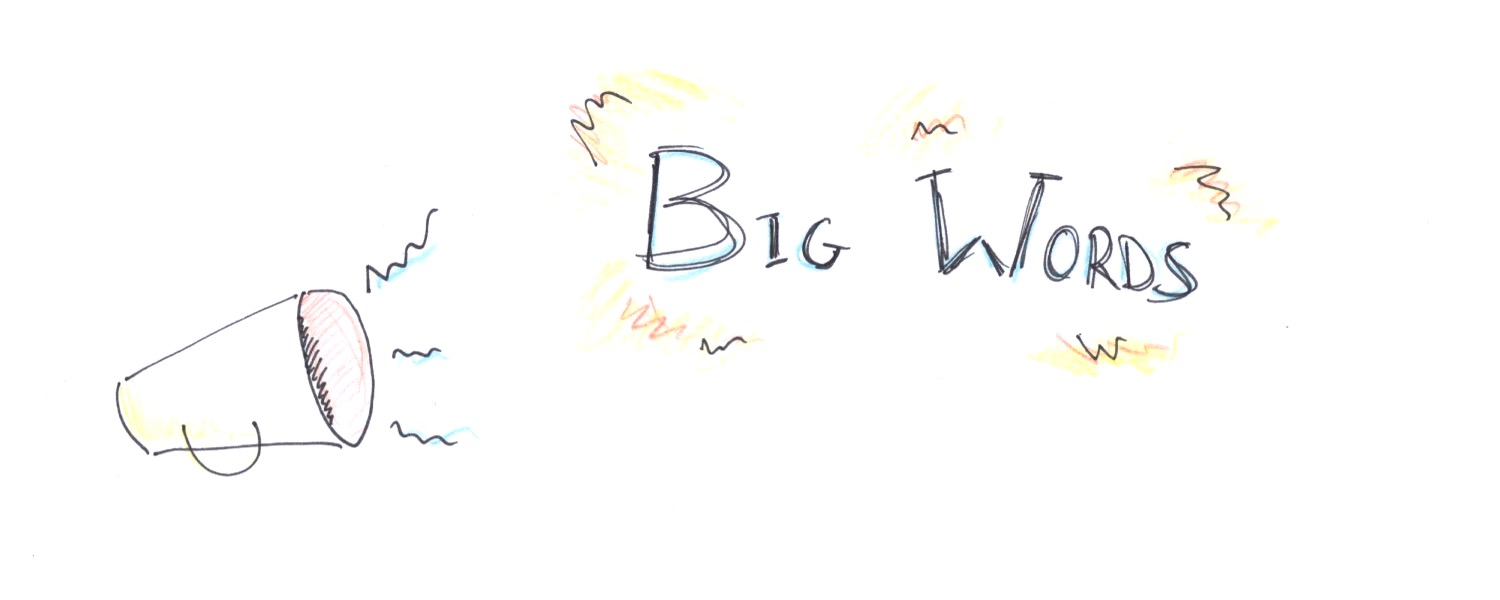
Stop trying to find your purpose, calling or passion! You're looking the wrong way! Try focusing on their origins instead.
Find your Purpose. Find your Passion. Find your Calling. Or your Mission. And for good measure, go with the Flow.
Pff, give me a break!
Finding Passion, Flow, Purpose, Calling and Mission. All these big words. All these things to find. I don't like it. Moreover, I think it's disempowering.
Why? Three reasons: (1) Size, (2) Metaphor and (3) Misdirection of attention.
Let me explain and give you a better approach.

Pricing 4: How to Price based on Value and Perception.
A business works because it sells something at a price that is less than what it's worth to its clients. How do you base your prices on the value you deliver? What's the role of the client's perception of you in all of this?
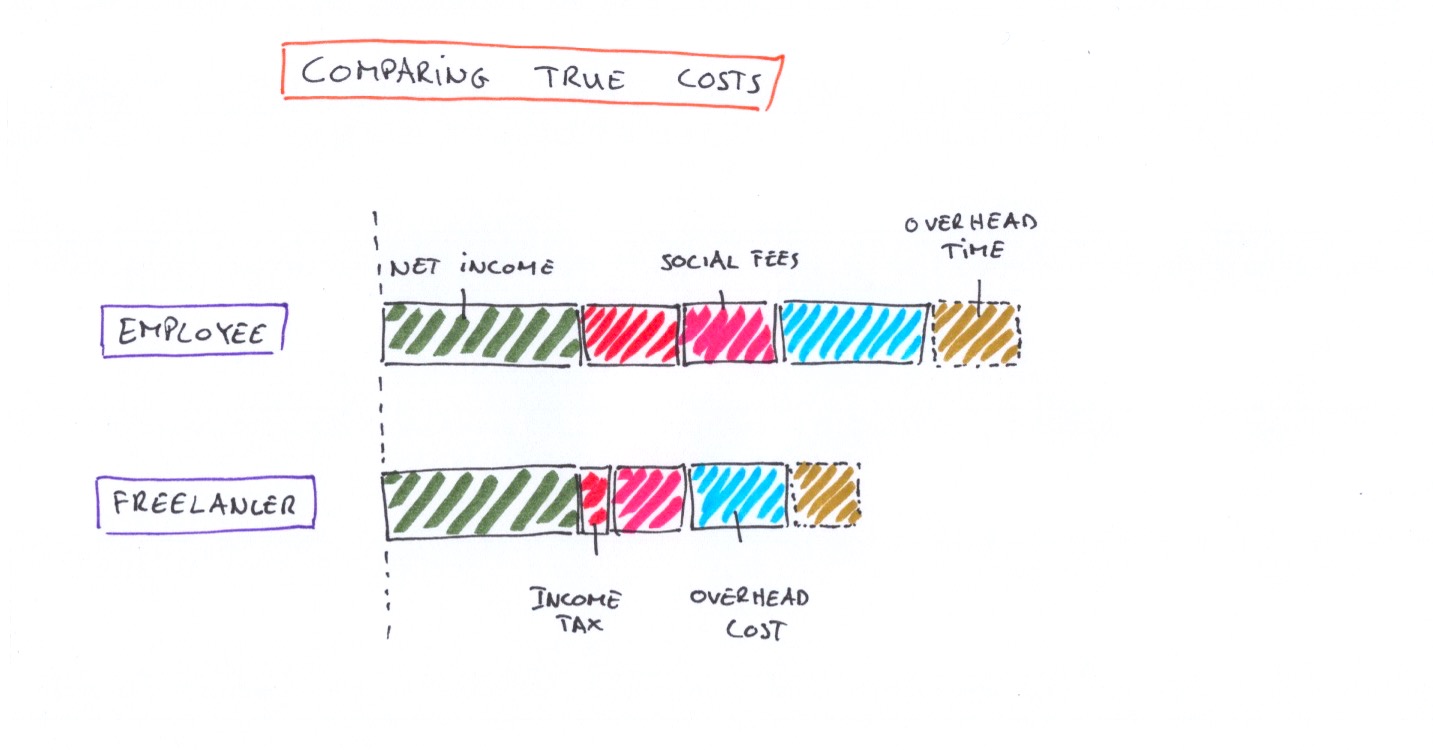
Pricing 3: Why freelance fees aren't as high when you compare them with the true costs of employees.
You charge what per hour?? The outcry you get when you share how much you charge to people who work a regular job. But what if these fees aren't as high as they seem? What if we would compare them to the true costs to the employer of that person? If we add all the costs and calculate the costs per hour, the freelancer fees seem way more reasonable.
